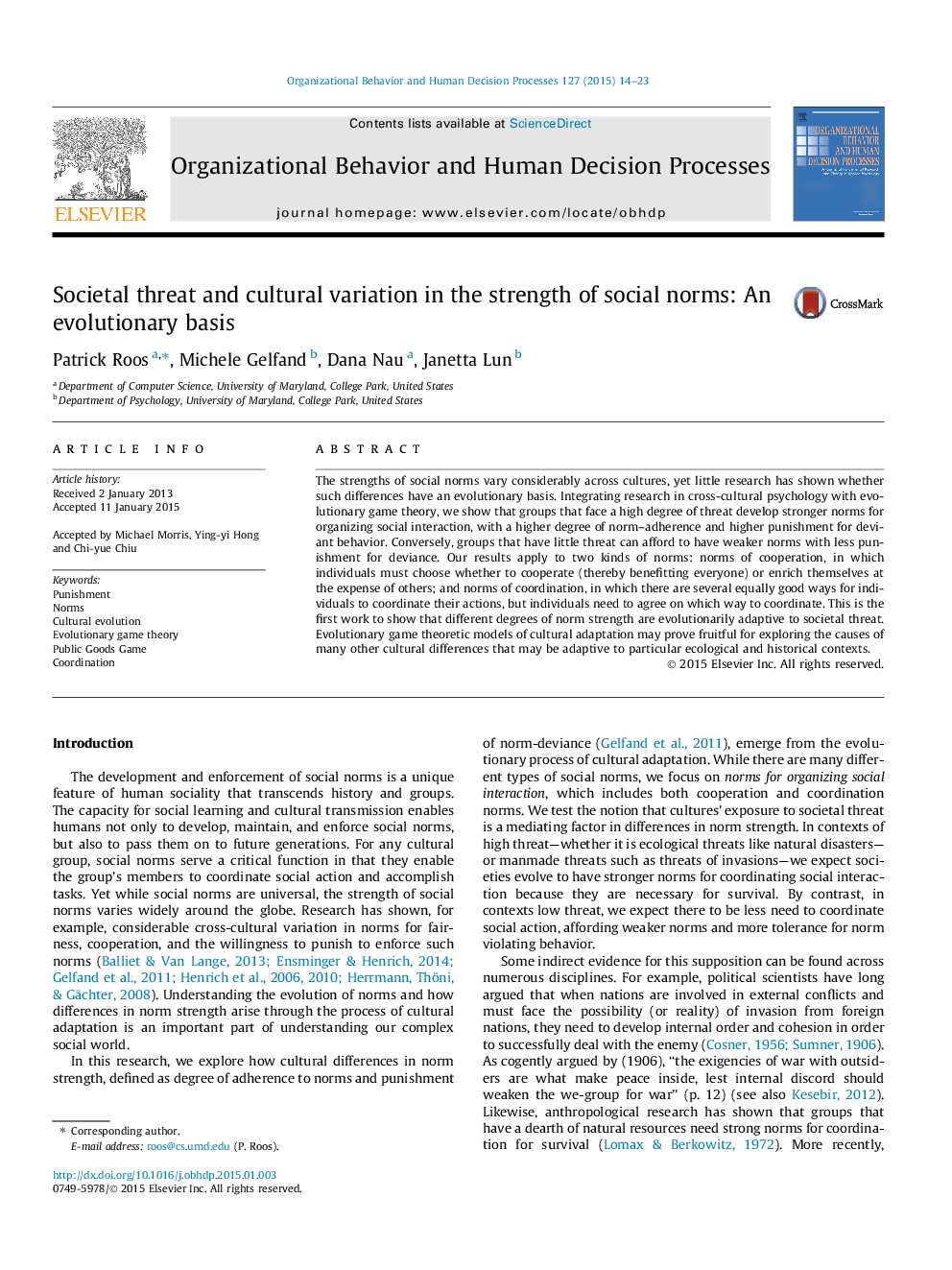| Article ID | Journal | Published Year | Pages | File Type |
|---|---|---|---|---|
| 7248193 | Organizational Behavior and Human Decision Processes | 2015 | 10 Pages |
Abstract
The strengths of social norms vary considerably across cultures, yet little research has shown whether such differences have an evolutionary basis. Integrating research in cross-cultural psychology with evolutionary game theory, we show that groups that face a high degree of threat develop stronger norms for organizing social interaction, with a higher degree of norm-adherence and higher punishment for deviant behavior. Conversely, groups that have little threat can afford to have weaker norms with less punishment for deviance. Our results apply to two kinds of norms: norms of cooperation, in which individuals must choose whether to cooperate (thereby benefitting everyone) or enrich themselves at the expense of others; and norms of coordination, in which there are several equally good ways for individuals to coordinate their actions, but individuals need to agree on which way to coordinate. This is the first work to show that different degrees of norm strength are evolutionarily adaptive to societal threat. Evolutionary game theoretic models of cultural adaptation may prove fruitful for exploring the causes of many other cultural differences that may be adaptive to particular ecological and historical contexts.
Related Topics
Social Sciences and Humanities
Business, Management and Accounting
Marketing
Authors
Patrick Roos, Michele Gelfand, Dana Nau, Janetta Lun,
